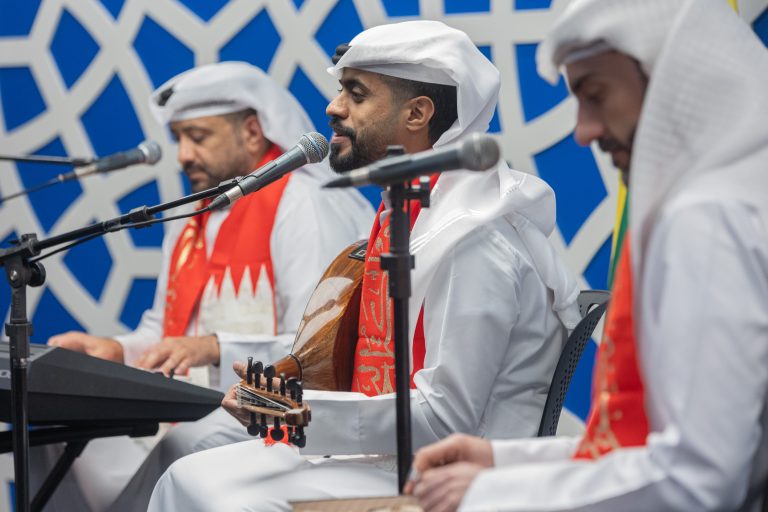São Paulo – Three musicians dressed in traditional Bahraini attire, in white and red, were on stage. With them were the oud and qanun, two traditional musical instruments from the Arab world, along with a keyboard. And this was how Bahrain celebrated 50 years of diplomatic relations with Brazil in São Paulo, during an event at the Arab-Brazilian Chamber of Commerce (ABCC)’s Auditorium on Thursday evening (26).
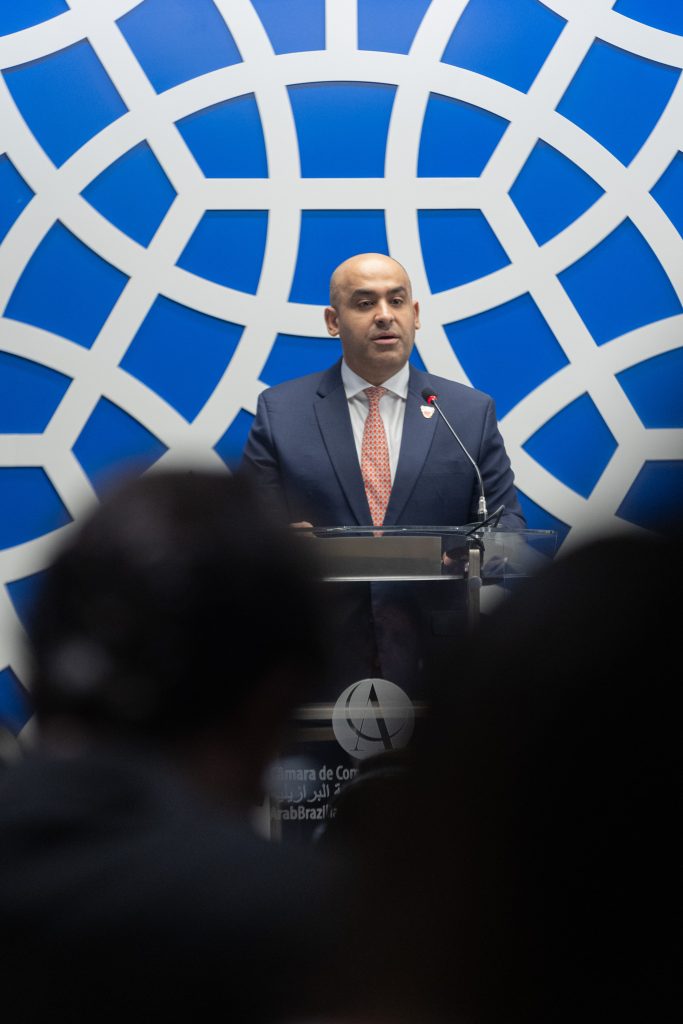
Held by the Embassy of Bahrain in Brazil and the ABCC, with support from the Government of the State of São Paulo through its Secretariat of Culture, and Creative Industries and Economy, the event brought together authorities, businesspeople, diplomats, religious leaders, and other figures from Brazil and elsewhere to celebrate the history of Brazil-Bahrain relations with music, a cocktail reception, and oral presentations. Before the musical concert, leaders spoke about the 50-year history between the two countries.
The milestone, whose official date is June 26, 1974, coincides with the celebrations of the silver jubilee of the ascension to the throne of the King of Bahrain, Hamad bin Isa Al Khalifa. “Fifty years after the establishment of relations between our countries, we are faced with many achievements reached in political, economic, defense, cultural, sports, and many other vital areas of common interest,” said the Ambassador of Bahrain to Brazil, Bader Abbas Alhelaibi, at the event.
Alhelaibi highlighted the initiatives of the King of Bahrain and the President of Brazil, Luiz Inácio Lula da Silva, for cooperation and coordination between the countries at the political economic and other levels, with the completion of four rounds of political consultations between the foreign ministries of Bahrain and Brazil, and the expectation of a fifth round to be held soon. “The trade balance has recorded unprecedented numbers in recent years, reflecting the strength of the relations between the two friendly countries,” he said.
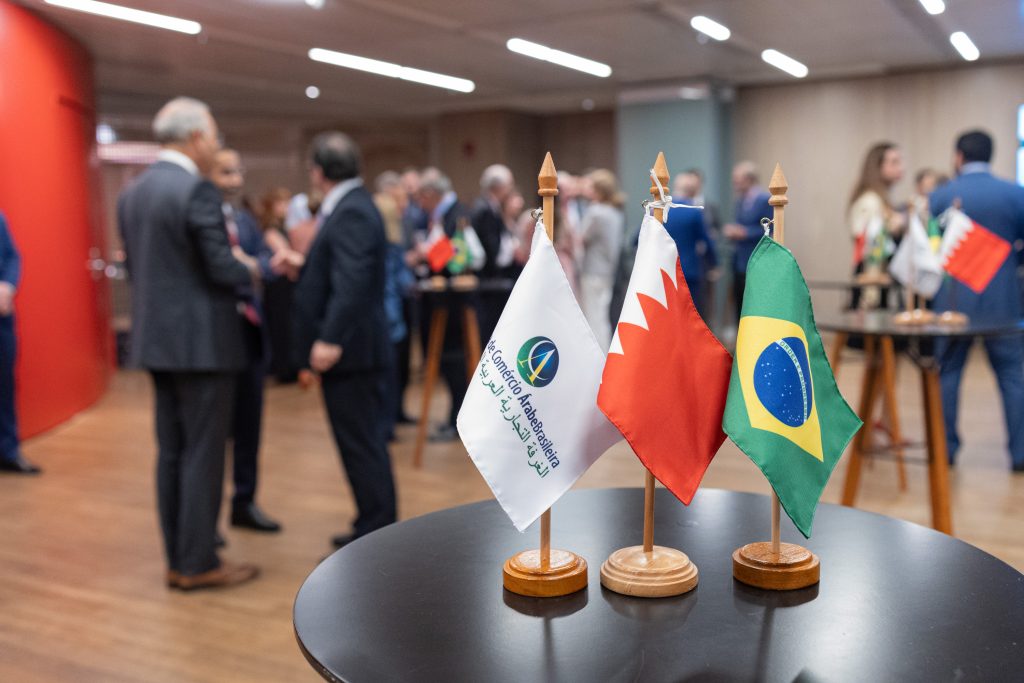
From January to August this year, Brazil and Bahrain had a trade volume of USD 891 million, of which USD 739.5 million were Brazilian exports and USD 151.5 million were sales from Bahrain. The Brazilians supply the Arab country mainly with iron ore, chicken meat, sugar, and beef, while the largest volume of Bahrain’s exports to Brazil consists of oil, fertilizers, and aluminum.
ABCC President Osmar Chohfi spoke about this trade, which he described as relevant and complementary. “In these 50 years of relationship, Brazil and Bahrain have been building a bilateral relationship marked by a significant trade that’s characterized by complementarity, as well as a relationship that’s always friendly and increasingly close,” he said to those present.
Chohfi reminded that Bahrain opened its embassy in Brazil in 2018, and Brazil did the same in 2021 in Bahrain. Since then, visits by heads of state and high-level meetings have significantly increased, and the countries have begun to work more intensively on agreements. “It’s important to highlight that bilateral trade between Bahrain and Brazil has doubled in volume to USD1.3 billion in 2023, which places Bahrain among Brazil’s top trading partners in the Middle East,” he said.
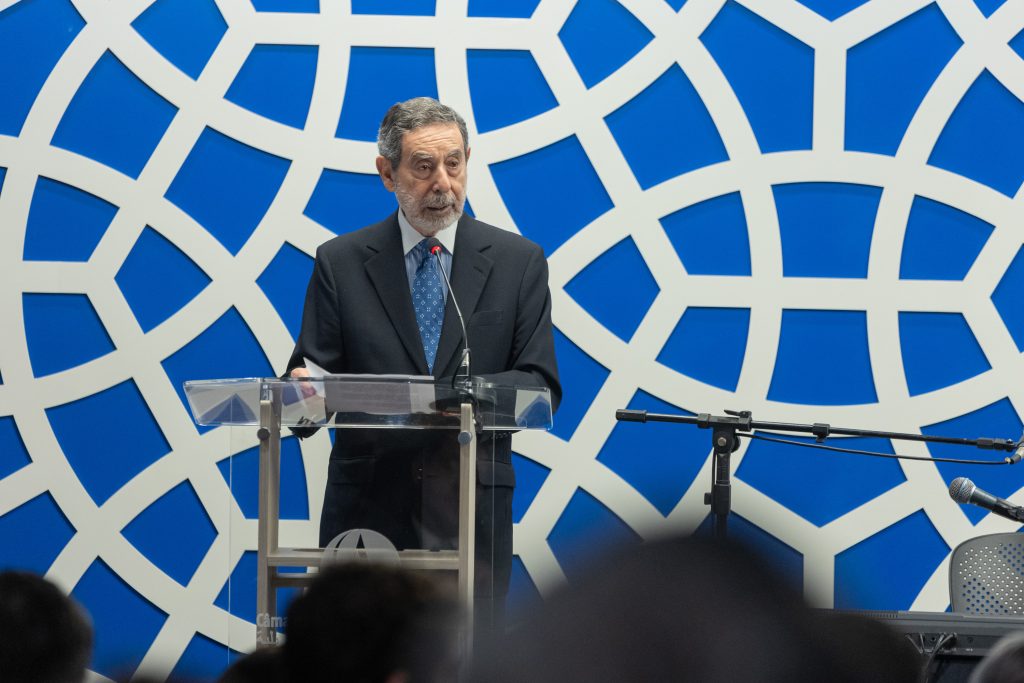
The ABCC’s president recalled that the Brazilian Minister of Foreign Affairs, Mauro Vieira, has recently attended a ministerial meeting of the Gulf Cooperation Council (GCC) and held meetings with the foreign ministers of its countries, including Bahrain. “As a diplomat that I once was, I celebrate the importance of creating a mechanism for political consultations between Brazil and the countries of the GCC to intensify contacts between the regions,” he said.”
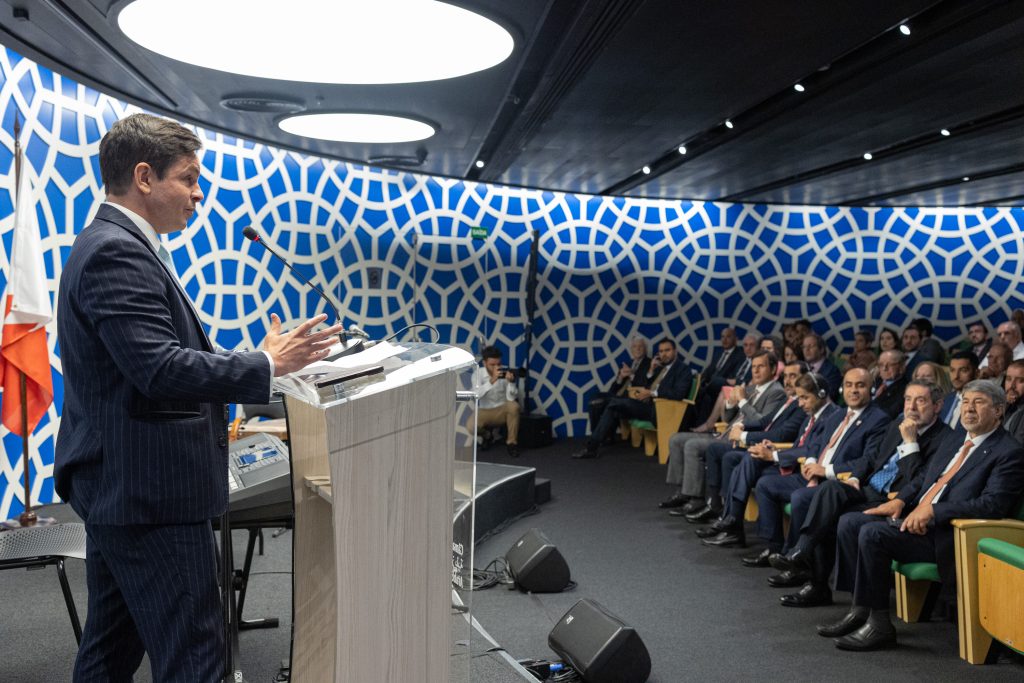
Representing Governor Tarcísio de Freitas, the head of the International Advisory Office of the Government of the State of São Paulo, Samo Tosatti, said Bahrain has a great friend in São Paulo and highlighted the attributes of the Arab country. “Although young, Bahrain is a very prosperous nation—if we look at the last ten years, it’s grown by an average of more than 2% per year, nearly 3% per year,” he said
Tosatti noted that there is a large foreign population in Bahrain. “This demonstrates the country’s capacity for coexistence and tolerance. It is an example for the world,” he said, also discussing the similarities between the state of São Paulo and Bahrain, mentioning economic freedom, the fact that São Paulo has the highest per capita GDP and the highest innovation index in Brazil. “These are two very prosperous regions,” he said.
With oud and qanun
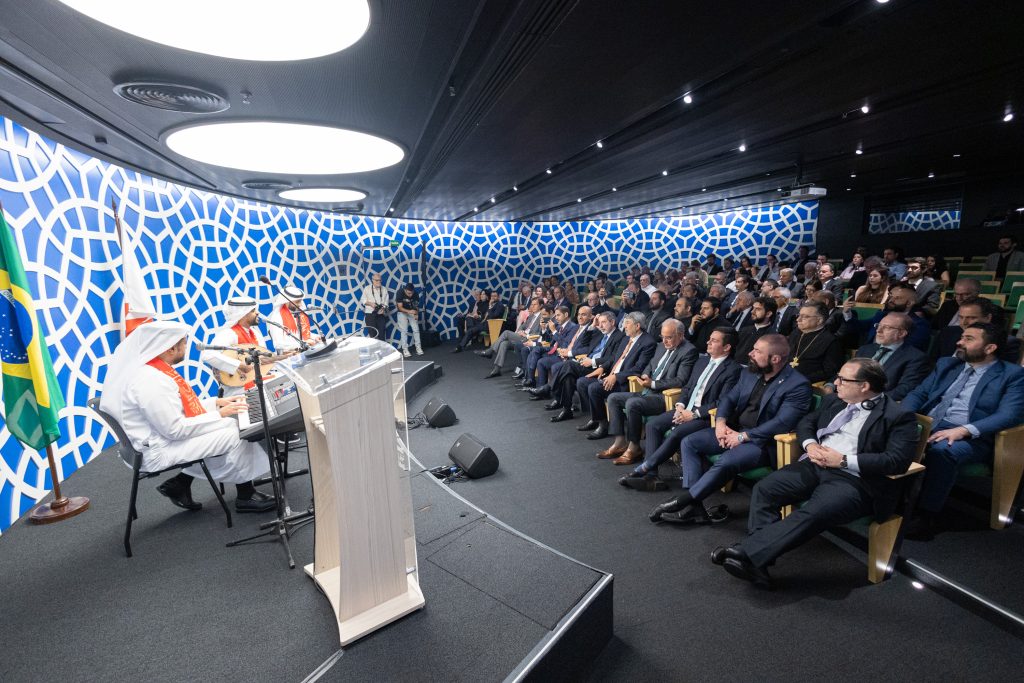
After the speeches, those present enjoyed almost an hour of Arab music. Before the performance, Alhelaibi said that culture plays an important role in building bridges of cultural and artistic communication between peoples, including in the rapprochement between Brazil and Bahrain. According to him, capoeira and Bahraini dance, for example, are similar because both involve martial arts.
The group that performed was the Bahrain Authority for Culture and Antiquities’ Music Band. The trio brought a range of sounds from melancholic to festive, almost always centered around themes of love, with a repertoire not only from Bahrain but from the entire Arab world, including countries like Morocco, Iraq, the United Arab Emirates, Egypt, and Lebanon. The band often performs in Bahrain as well as abroad.
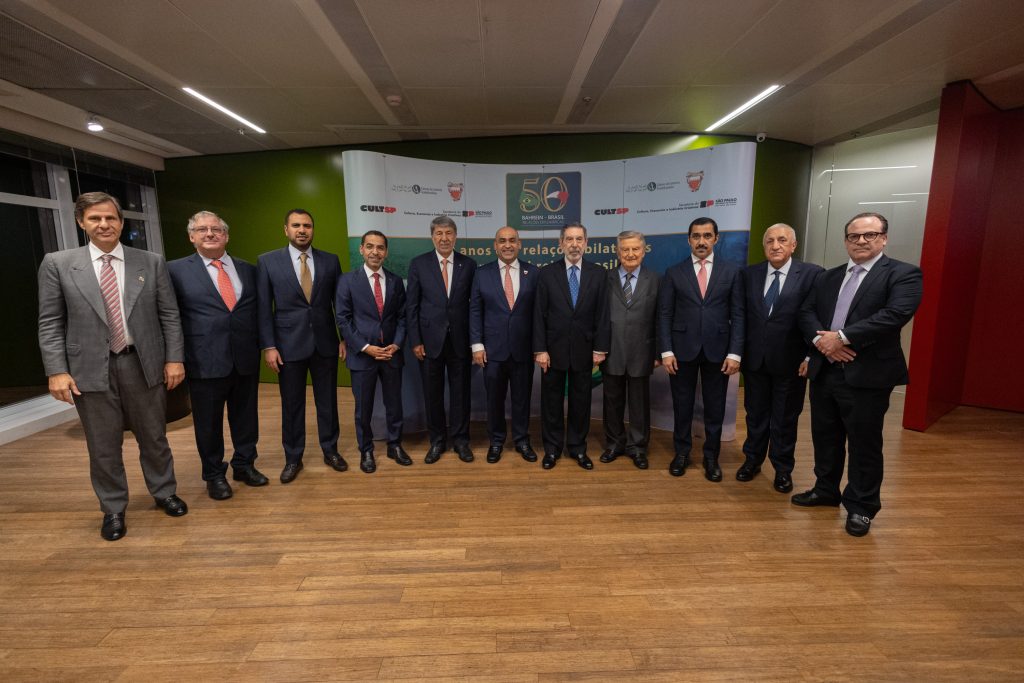
The event was attended by ambassadors of Arab countries to Brazil, such as Nabil Adghoghi from Morocco, Saleh Alsuwaidi from United Arab Emirates, Ahmad Mohammed Ali Mohamed Alshebani from Qatar, Ibrahim Alzeben from Palestine, who is also Dean of the Council of Arab Ambassadors in Brazil, the chargé d’affaires of the Embassy of Kuwait, Ibrahim Altourah, the Consul General of the UAE in São Paulo, Abdalla Shaheen, federal deputy Paulo Bilynskyj, the Vice President of International Relations and Secretary-General of the ABCC, Mohamad Mourad, and other leaders of the organization and guests.
Rea more:
Bahrain-Brazil relations: Golden Jubilee
Translated by Guilherme Miranda



